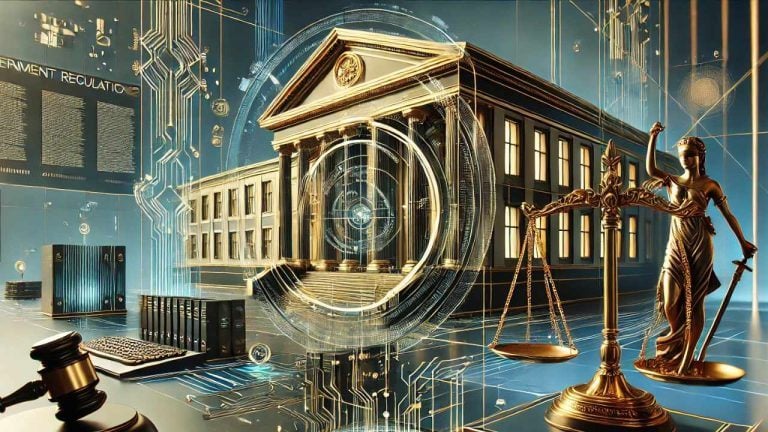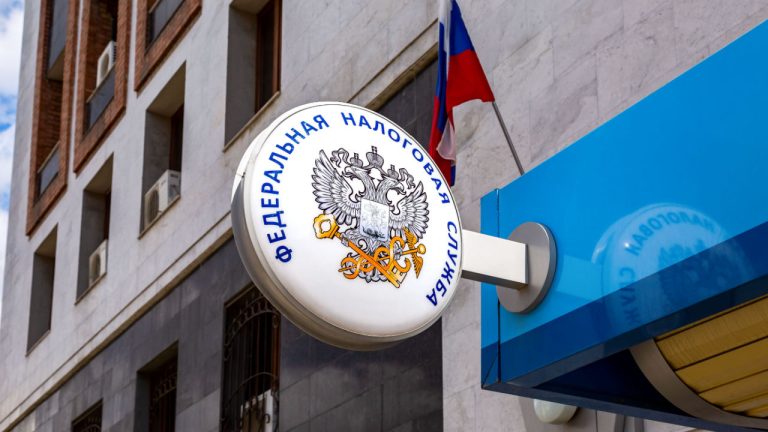
The chief executive of USDT stablecoin issuer Tether is reportedly working with US authorities to construct laws around dollar-pegged crypto assets. In a new post on the social media platform X, Fox Business journalist Eleanor Terrett reports that Paolo Ardoino and Tether are “actively engaging” with the US government on how to best form laws […]
The post Tether CEO Paolo Ardoino Actively Working With US Lawmakers To Shape Stablecoin Laws: Report appeared first on The Daily Hodl.
 Tesla and Spacex CEO Elon Musk has warned that without substantial government reform, laws and regulations will worsen annually, potentially stifling major initiatives. He has reiterated his call for significant U.S. government changes and agreed to help former President Donald Trump lead a new government efficiency commission, an idea he proposed. Musk believes reducing wasteful […]
Tesla and Spacex CEO Elon Musk has warned that without substantial government reform, laws and regulations will worsen annually, potentially stifling major initiatives. He has reiterated his call for significant U.S. government changes and agreed to help former President Donald Trump lead a new government efficiency commission, an idea he proposed. Musk believes reducing wasteful […]

SEC Chair Gary Gensler says he gets an “outsized ratio” of questions about crypto despite its relatively small size compared to the overall financial market.
The head of the United States securities regulator, Gary Gensler, appears to be getting fed up with answering questions about crypto — recently commenting he receives an “outsized ratio” of questions about it compared to traditional finance.
“Crypto is a small piece of our overall markets,” Gensler said on CNBC’s Squawk Box on May 7 responding to a question on where the Securities and Exchange Commission’s priorities lie.
Gensler inferred a comparison between the “$110 trillion capital market” the SEC oversees and the $2.4 trillion crypto market — claiming much of the latter doesn’t comply with U.S. securities laws so it has “an outsized piece of the scams and frauds and problems in our markets.”

A prominent crypto advocacy group says that new crypto tax regulations have come into effect that are impossible to comply with. In a new press release, Coin Center says that The Infrastructure Investment and Jobs Act, which passed Congress in 2021, came into effect on January 1st and will force anyone who receives more than […]
The post New Crypto Tax Law That’s ‘Impossible To Comply With’ Now in Effect, Says Coin Center – Here’s What It Is appeared first on The Daily Hodl.

The SEC alleged Kraken operated as an unregistered exchange, broker, dealer and clearing agency.
The United States Securities and Exchange Commission (SEC) has sued Kraken alleging it failed to register as an exchange, broker, dealer and clearing agency with the regulator and claimed it commingled customer funds.
In a Nov. 20 complaint, the SEC claimed that since 2018, Kraken had operated as a platform that offered the unlawful sale of cryptocurrencies.
"Without registering with the SEC in any capacity, Kraken has simultaneously acted as a broker, dealer, exchange, and clearing agency with respect to these crypto asset securities."
Additionally, the SEC alleged that Kraken's business practices and "deficient" internal controls saw the exchange commingle customer assets with its own, which resulted in an allegedly "significant risk of loss" for its customers.
This is a developing story, and further information will be added as it becomes available.

The head of the U.S. financial consumer watchdog says it’s looking to issue guidance on how crypto could fall into electronic fund transfer laws.
The top United States agency for consumer financial protection is considering applying the Electronic Fund Transfer Act (EFTA) to crypto, in an attempt to protect consumers from fraudulent crypto transfers.
Speaking at an Oct. 6 payments conference by the Brookings Institution think tank, Consumer Financial Protection Bureau (CFPB) director Rohit Chopra said his agency is looking at applying the EFTA to “private digital dollars and other virtual currencies.”
“To reduce the harms of errors, hacks, and unauthorized transfers, the CFPB is exploring providing additional guidance to market participants to answer their questions regarding the applicability of the Electronic Fund Transfer Act with respect to private digital dollars and other virtual currencies,” Chopra said.
Passed in 1978, EFTA is a federal law that protects consumers when they transfer funds electronically, whether by debit cards, ATMs or bank accounts and aims to limit consumer losses from unauthorized transfers.

The regulations obligate financial institutions to inform consumers of if — or when — they are liable for unauthorized transfers. Liability disclosures are meant to be communicated before the first electronic transfer happens on a user account.
The move by the agency comes amid an over 150% year-on-year increase in crypto-platform hacks and as the first criminal trial of FTX co-founder Sam Bankman-Fried enters its second week who is accused of fraudulently accessing and using customer funds.
The exchange also suffered a hack north of $400 million in the weeks after its bankruptcy.
Related: Basel Committee to consider disclosure requirements for banks’ crypto assets
Chopra added the CFPB will also issue orders to “certain large technology firms” to gain information on their business practices in regard to the use of personal data and issuing private currency.
Additionally, the agency will look into examining non-banks that offer payment platforms.
Chopra also suggested the Treasury’s Financial Stability Oversight Council should classify some crypto activities as a “systemically important payment clearing or settlement activity.”
“This could provide, for example, other agencies with critical oversight and tools to ensure that a stablecoin is actually stable.”
Magazine: Blockchain detectives — Mt. Gox collapse saw birth of Chainalysis

Representative Derek Kilmer will chair the Artificial Intelligence Working Group, which is aimed at introducing “sensible, bipartisan” policies for AI technology.
Democrats from the United States House of Representatives have formed a working group on artificial intelligence aimed at introducing new legislation around the nascent tech sector.
The 97-member New Democrat Coalition announced its AI working group on Aug. 15, stating it would work with President Joe Biden’s administration, stakeholders and lawmakers from both sides of the political arena to develop “sensible, bipartisan policies to address this emerging technology.”
The group will focus on a range of issues including how best to leverage AI for growth while still ensuring that workers who stand to lose their jobs as a result of AI can remain employed.
Artificial Intelligence is the biggest technological threat we've faced since the invention of the atomic bomb.
— Rep. Seth Moulton (@RepMoulton) August 15, 2023
I am proud to be a part of the @NewDemCoalition's AI Working Group to assess the dangers and opportunities posed by AI and develop a framework to regulate it. https://t.co/99hGdHgb7x
Representative Derek Kilmer will serve as chair of the AI working group and told CNBC the primary focus of the working group was to crack down on the spread of misinformation and aired concerns on advanced AI-generated deepfakes becoming increasingly prevalent online.
“There’s real concern about the potential for AI generated disinformation, real concern about misuse of advanced AI models.”
“That’s the type of thing that requires Congress to get smart and get smart fast,” Kilmer added.
Artificial intelligence is the next great frontier of technological advancement.
— Rep. Derek Kilmer (@RepDerekKilmer) August 15, 2023
And we’re already seeing how breakthroughs in this emerging technology present both great opportunities and challenges with potential disruptions for workers, democracy, and national security. https://t.co/hflVef6k9Y
Related: Pentagon forms ‘Task Force Lima’ to map generative AI for US defense
Lawmakers, academics and top tech CEOs have all signaled the need to reign in on the potential dangers raised by AI.
In May, Vice President Kamala Harris, along with Biden’s top advisers, held a meeting with several AI industry CEOs to discuss concerns about the risks associated with AI.
In June, President Biden held a meeting with experts in AI in Silicon Valley to discuss a similar subject.
AI Eye: Is AI a nuke-level threat? Why AI fields all advance at once, dumb pic puns
Additional reporting by Felix Ng.

The crypto bills could hand power to the purportedly more crypto-friendly CFTC and better define the SEC’s jurisdiction.
Since 2022, there have been at least 50 digital asset bills reportedly introduced to Congress, aiming to govern everything from stablecoins to the jurisdictions of United States regulators.
However, at least four of them are seen as potentially having a major impact on the industry (if passed) — given the attention from lawmakers and the crypto industry alike.
This bill introduced on July 20, aims to create a solid process for determining if a digital asset is a commodity or security and would clarify the jurisdictions of regulators.
Introduced by Republican members of the Agriculture and Financial Services Committees of the United States House, the bill would give the Commodity Futures Trading Commission (CFTC) power over digital commodities and clarity on the Securities and Exchange Commission’s (SEC) jurisdiction.
Introducing the Financial Innovation and Technology for the 21st Century Act. This bill establishes a regulatory framework for digital assets, protects consumers, fosters innovation, and positions America as a leader in finance and technology. #crypto https://t.co/0ihzY3MP0k
— House Committee on Agriculture (@HouseAgGOP) July 20, 2023
A process for crypto assets that have been labeled securities would also be given a path to be re-labeled as commodities — which could see some projects revived after being effectively shut down due to past legal decisions.
A bill with similar goals — known as the Lummis-Gillibrand bill or the RFIA — aims to clarify the SEC and CFTC’s roles in crypto regulation. It also aims to give greater consumer protection by providing laws “to prevent another FTX-style event from occurring,” according to the bills fact sheet.
The crypto asset industry is here to stay.
— Senator Cynthia Lummis (@SenLummis) July 12, 2023
Today, @SenGillibrand and I are reintroducing landmark legislation to create a federal regulatory framework that allows crypto businesses and investors to prosper here in America while protecting consumers from bad actors. pic.twitter.com/z2pr0evWt2
Digital asset tax treatment clarity is also covered and the Federal Reserve would be ordered to process bank applications for master accounts from crypto firms “on an equitable basis.”
It would also see depository institutions be the only ones allowed to issue stablecoins, would make room for decentralized autonomous organizations (DAOs) in the tax code and commission an advisory committee along with a slew of regular reports on the industry.
Introduced on June 1, DAMS is another bill aiming to define the crypto-related roles of the SEC and CFTC and set a framework for the regulators to make determinations on if certain cryptocurrencies are securities or commodities.
The bill is getting some attention, on June 26 Representative Maxine Waters sent letters to Treasury Secretary Janet Yellen and SEC chair Gary Gensler asking them to weigh in on the bill.
#RELEASE: Ranking Member @RepMaxineWaters Calls on @USTreasury, @SECGov to Share Analysis on Republican Digital Assets Market Structure Bill | https://t.co/lloLm7Lho6 pic.twitter.com/qbPNMSRl5v
— U.S. House Committee on Financial Services (@FSCDems) June 26, 2023
Under the proposed bill, before a certain crypto token is given commodity status, it would have to undergo certification with the SEC to prove its adequately decentralized.
Crypto exchanges would be able to register with the SEC as an alternative trading system (ATS) and the regulator wouldn’t be able to deny registration due to a platform trading digital assets.
The crypto firm Prometheum is an SEC-registered ATS and can offer trading, clearing, settlement and custody of digital assets, although it's currently unclear what assets the SEC permits.
DAMS would clarify ATS rules and allow for digital commodities and stablecoins to be traded on ATS platforms and the SEC would be required to allow broker-dealers to custody cryptocurrencies if they meet requirements.
First introduced in September 2020, an updated version of the DCEA was last re-introduced in April 2022 adding that stablecoin providers could register as a “fixed-value digital commodity operator” inclusive of recording and reporting requirements.
The DCEA hands the CFTC the power to register and regulate spot exchanges which are brought under the same rules as other commodity exchanges.
1/ We’re proud to support the re-introduction of the Digital Commodity Exchange Act (DCEA). There is a growing consensus in Washington that federal oversight of digital asset spot markets is needed, and we believe that the DCEA sets forward an intelligent framework... https://t.co/U0RMMOKBe9
— Blockchain Association (@BlockchainAssn) April 28, 2022
Cryptocurrencies that are not considered securities are labelled digital commodities under the CFTC’s purview and the SEC would police crypto securities offerings.
Crypto project developers could also voluntarily register with the CFTC for submitting disclosures required to publicly trade and list their asset on an exchange.
Many more crypto bills are floating through Congress with various success. Stablecoin regulatory proposals have come through the Stablecoin TRUST Act and the Stablecoin Innovation and Protection Act.
Related: Congress may be ‘ungovernable,’ but US could see crypto legislation in 2023
The descriptively titled Crypto Consumer Investor Protection Act and the Crypto Exchange Disclosure Act were introduced in December 2022 but haven’t seen much movement since.
The Digital Asset Anti-Money Laundering Act was also introduced in Decemeber by Senators Elizabeth Warren and Roger Marshall would regulate crypto ATMs and ban financial firms from using crypto mixers. Warren vowed its reintroduction in February but that action is yet to happen.
Opinion: GOP crypto maxis almost as bad as Dems’ ‘anti-crypto army’

The securities regulator said it would make a recommendation within 120 days on Coinbase’s rulemaking request, but says the action has “no merit.”
The United States securities regulator has asked for four more months to provide a response to Coinbase’s request for crypto regulatory clarity.
In a June 13 letter submitted to the U.S. Court of Appeals for the Third Circuit, the Securities and Exchange Commission (SEC) said it needs an additional 120 days to reply to Coinbase’s request that it adopt new rules and provide further clarity on the laws governing crypto.
The letter was in response to the court’s June 6 order to the SEC which asked the regulator to address if it’s denying the rulemaking or if it needs more time to respond.
The SEC said it “has not decided what action to take on that petition in whole or in part” and claimed Coinbase’s request for a writ of mandamus has “no merit.”
The regulator claimed that the mandamus petition “should be denied” but anticipated it would be able to make a recommendation on Coinbase’s petition for rulemaking “within the next 120 days.”
In response to the letter, Coinbase chief legal officer Paul Grewal informed his 40,000 Twitter followers that the SEC had repeated the “fallacy” that it was yet to decide on any new regulation.
Related: Hinman documents suggest SEC is the wrong agency to govern digital assets, crypto lawyer says
He added the letter ignored clear statements from SEC chair Gary Gensler that the SEC has “no intent to issue new rules.”
“[The SEC] instead conflate the evidence of a decision those statements provide with an argument that the statements are themselves a decision,” Grewal said.
4) they ignore the clear statements of the Chair that confirm they have no intent to issue new rules, and instead conflate the evidence of a decision those statements provide with an argument that the statements are themselves a decision. 3/5
— paulgrewal.eth (@iampaulgrewal) June 13, 2023
“They refuse to commit to any deadline despite the Court's explicit order,” Grewal added.
The court’s order to the SEC came the same day the regulator sued Coinbase for offering unregistered securities and operating an unregistered securities exchange.
Magazine: Joe Lubin — The truth about ETH founders split and ‘Crypto Google’
 Russia’s tax administration is going to be tasked with overseeing the crypto industry in the country, a high-ranking government official has indicated. According to the regulatory concept that’s currently under consideration, the revenue service will also serve as an entry point for market participants. Russians to Report Crypto Holdings and Transactions to Their Tax Service […]
Russia’s tax administration is going to be tasked with overseeing the crypto industry in the country, a high-ranking government official has indicated. According to the regulatory concept that’s currently under consideration, the revenue service will also serve as an entry point for market participants. Russians to Report Crypto Holdings and Transactions to Their Tax Service […]